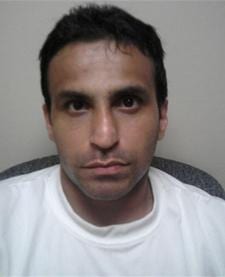The man convicted in the “callous, brutal” 2003 killing of transsexual prostitute Shelby Tracy Tom has been arrested in downtown Vancouver after allegedly breaching his parole conditions.
Vancouver police say Jatin Patel breached parole conditions when he failed to return to a half-way house Thursday.
He was taken into custody when officers recognized him Sunday at the Vancouver Public Library.
Vancouver Police Department spokesman Lindsay Houghton says Patel will be returned to prison where he will face the parole board.
Patel admitted he killed Tom when he discovered she was transgendered.
Originally charged with second-degree murder in Tom’s death, Patel pleaded guilty to manslaughter in early 2005.
BC Supreme Court Associate Chief Justice Patrick Dohm sentenced Patel Jul 20, 2005 to another four and a half years to complete the nine-year sentence he handed Patel.
Patel was given double credit for the time he was in jail since his arrest two days after Tom’s death.
As part of his parole conditions, Patel is not to be in, near, or around locations where sex trade workers are known or suspected to be congregating or working.
Police believed he may have been somewhere in the Downtown Eastside.
Prior to Tom’s death, Patel, a Canadian citizen who has spent most of his life in the US, had been serving a five-year sentence in a California prison for theft.
Upon his release, US authorities took him to the border near Vancouver and released him onto Canadian soil.
The day of his return to Canada, he went to The Penthouse where he had several beers, met Tom and took her to his North Vancouver hotel room.
There, while performing oral sex on Tom, he discovered she was transsexual. He became enraged and killed her, putting her body in a closet.
Patel then went out and brought another prostitute to his room who noticed the dead body. Patel told the woman he was thinking of throwing the corpse in the ocean, chopping it up or burning it and disposing of it.
The court heard the second prostitute talked Patel out of that course of action, saying it would severely distress the victim’s family.
Tom’s body was found behind a laundromat, wrapped in a hotel mattress cover and stuffed in a shopping cart.
Patel’s defender, Brian Coleman, told Dohm that Patel spent much of the past 14 years in US jails. He said Patel had been sexually assaulted in prison and that his reaction toward Tom sprang partially from that.
Also, Coleman said Patel was not a homosexual and suffered psychologically from having been born with a fused anus which was later corrected through surgery.
The court was told Tom was generous with her time, helping the disadvantaged in Vancouver’s Downtown Eastside.
Tom was a hard working, high track, high-priced prostitute who was proud of her half-million-dollar West End condo, her Mercedes and her beloved pet beagle, recalls transsexual sex worker activist Jamie-Lee Hamilton.
Dohm rejected a Crown application for a hate crime designation Jul 26, 2005 in the 2003 killing of Tom.
“This case is about a reaction to a sex trade worker’s sexual identity,” prosecutor Craig Dykes told Dohm in asking for a hate crime application. “It was a prejudiced or bias-based response.”
Dohm disagreed.
Patel did not know Tom was transgendered when he met her and therefore could not have been targeting her because of her sexual orientation, the associate chief justice ruled.

 Why you can trust Xtra
Why you can trust Xtra


